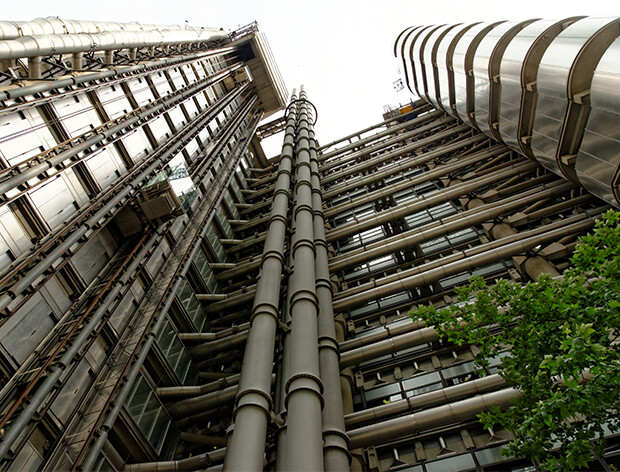In the midst of the coronavirus pandemic, the Lloyd’s Market Association (LMA) has published an ‘Armageddon’ clause to ensure (re)insureds aren’t left without cover in the event Covid-19 makes normal renewal discussions “untenable”.
The association, which represents the interests of the Lloyd’s underwriting community, says that the 14-day automatic extension would kick in in the “unlikely” event that Lloyd’s syndicates are unable to enter the London building for more than one day in the seven business days leading up to a scheduled renewal.
LMA states that people might be prevented from entering the office by either Lloyd’s Corporation, or as a result of a quarantine or “restriction in movement of people by any national or international body or agency”.
Since the LMA5392 clause was announced in March – roughly a week before the UK went into lockdown – this event has become increasingly probable, with the British government ordering people to stay at home as part of social distancing measures.
But any automatic extension would only be provided if LMA’s pre-existing “emergency trading protocol” fails.
LMA’s deputy director of underwriting, Patrick Davison, and head of non-marine underwriting, David Powell, explain to GTR why the emergency trading protocol should mean this new clause is never used and how Covid-19 is affecting trade credit and political risk insurance.
GTR: Can you explain what the emergency trading protocol is, and how it works?
Davison: The emergency training protocol is relatively straightforward, and it really is a fallback position. Quite a lot of business is transacted now over an electronic trading system, so the emergency trading protocol is actually only required where people can’t get into the Lloyd’s building where they would normally be seeing brokers face-to-face, or can’t transact electronically on one of the systems that have been developed. It is only going to be used if these systems have gone down and the building’s closed. Should this happen, then there is a protocol by which people can trade via email or over the phone, and effectively all it’s doing is setting out what the position in law is around formation of insurance contracts. So, for example, when you are putting your line down on a firm order, you need to have a particular text in the subject box of the email. It’s literally the protocol stipulating what you need to write to make sure that it’s clear that a contract has been entered into.
GTR: Why might the emergency trading protocol fail – is it simply if people are unable to send emails?
Davison: Yes, that’s where we were going. And actually, the clause that we’ve put out, you have hit upon the key point there, it is an ‘Armageddon’ clause, frankly, which will only be used if something has collapsed – such as the internet going down. Now, we don’t anticipate that’s going to happen – or for very long – but if it did happen, it would cause substantial problems. That’s why we’ve got this 14-day extension. So effectively, what we’re looking at is a limited period in which people are going to be struggling to communicate, and certainly struggling to communicate in the way that insurance providers and brokers would need to, ie the ability to send detailed risk information via email or via an electronic trading platform, and in those circumstances we would consider it appropriate to extend the policy for a limited period.
GTR: Are you expecting this clause to be used at all?
Davison: Since we published the clause, people have had much more detailed discussions about what needs to be done, and how to assist the insureds because of the issues they’re having. For example, if the finance director of a company is not around to sign off the insurance purchase, what do we do then? That’s much more of a case-by-case basis, but people are willing to extend where the circumstances require it. And so, while the Lloyd’s is building is closed, everyone is able to trade electronically on the systems that are in place, mostly Placing Platform Limited (PPL). We haven’t even had to revert to the emergency trading protocol yet.
GTR: Has there been a rise in trade credit and political risk insurance claims since coronavirus set in?
Powell: It’s far too early for any claims to have arisen on the trade credit and political risk side. It’s a class that is exposed to coronavirus claims, of course, but it will depend on how heavily the loans underneath the deals have been made to highly exposed industries. Retail, transport, tourism: those sorts of industries will be quite badly affected. So any trade finance that’s in connection with those industries is likely to struggle to a degree. I’ve talked to a couple of underwriters to get a view about what’s happening at the moment and what I’m hearing is that underwriters are starting to get some early warning signs of issues.
But we wouldn’t expect any claims for at least three months – and probably longer – depending on when loan payments fall due. It really comes down to it being on a risk-by-risk basis as and when the losses arise, but in the short term the exposure is clearly there, the pressure is starting to build on highly exposed industries and some losses will undoubtedly flow in due course.







